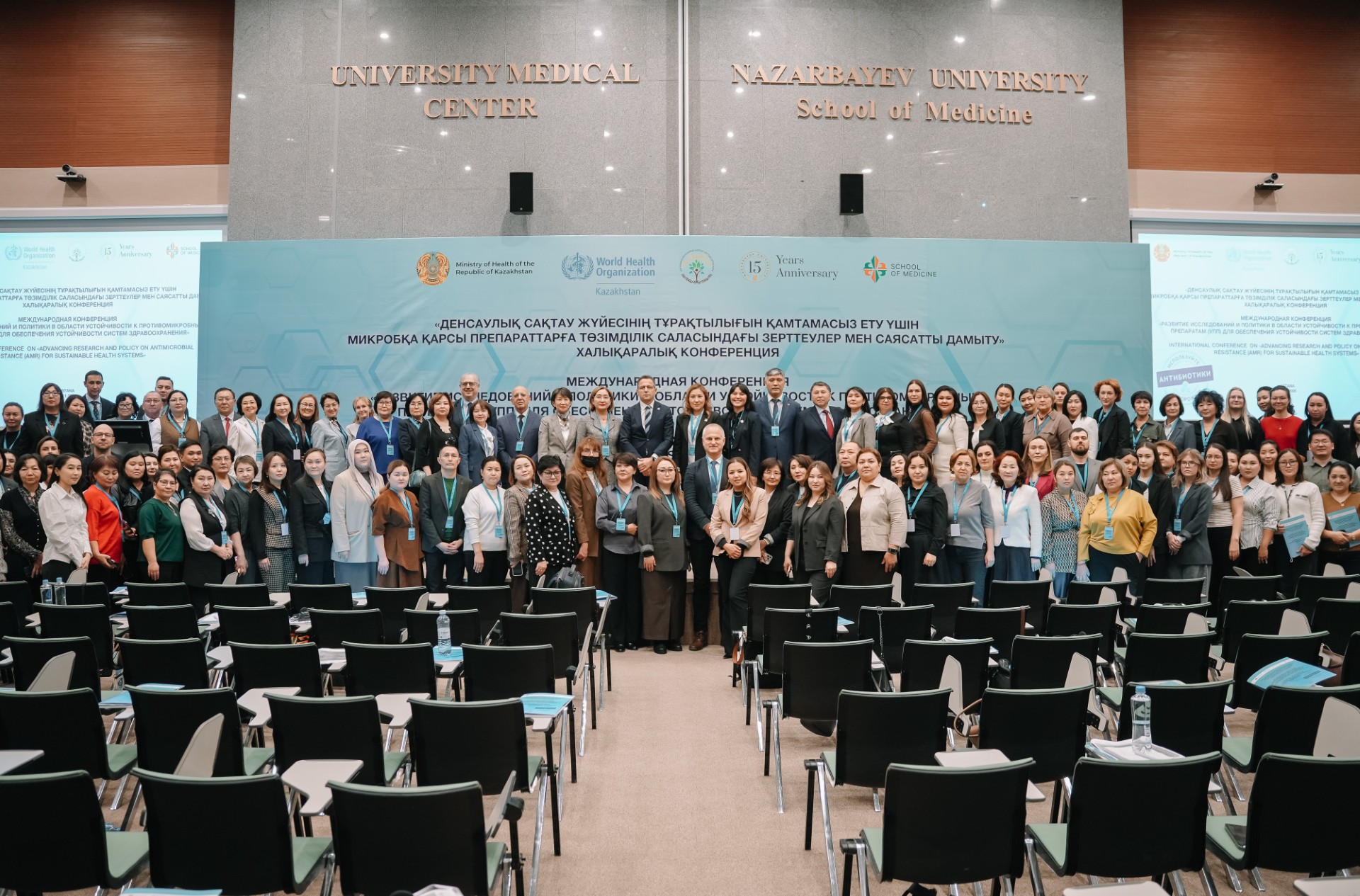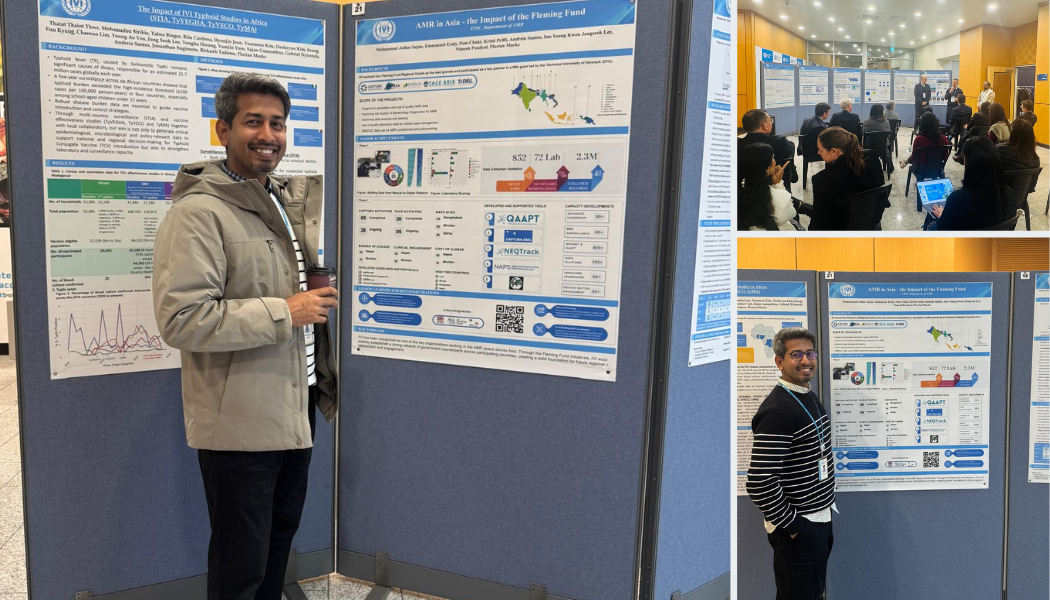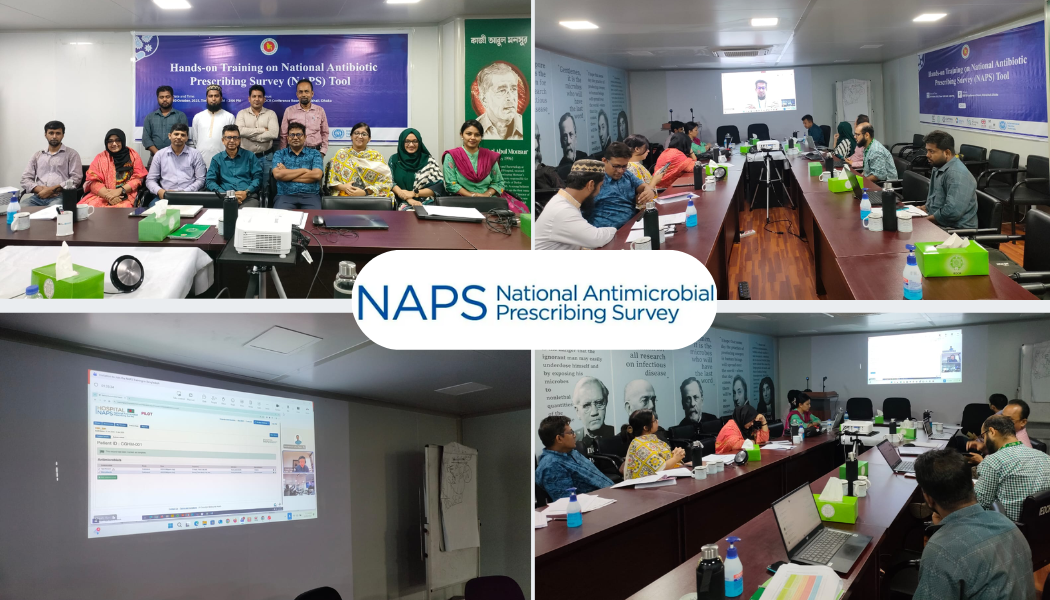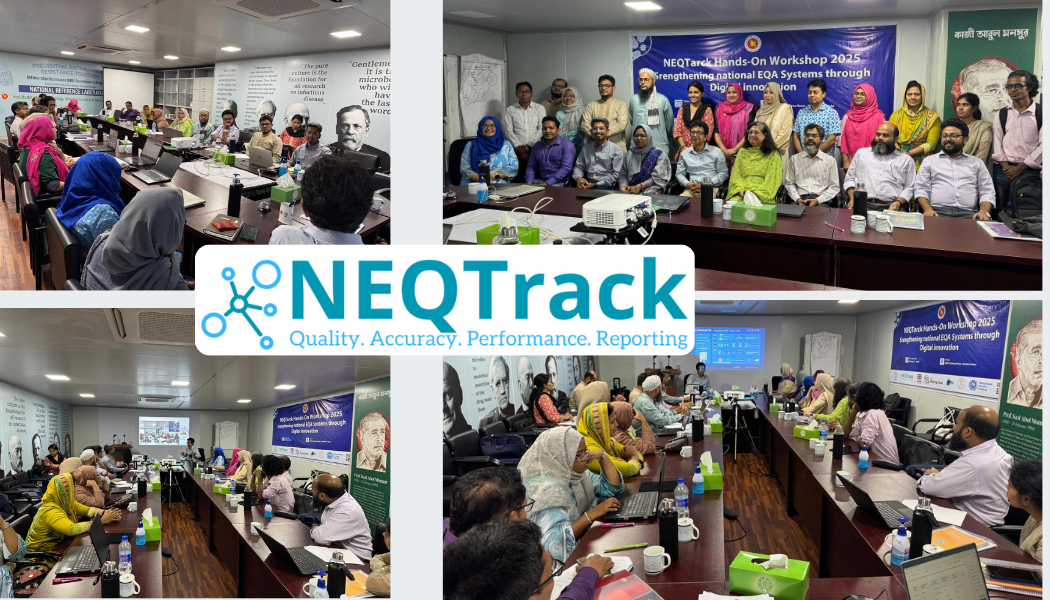Conference: Advancing Research and Policy on Antimicrobial Resistance (AMR) for Sustainable Health Systems
Date: November 20-21, 2025
Organized by: Nazarbayev University School of Medicine
Location: Kerey and Zhanibek Khans St 5/1, Astana 020000, Kazakhstan
Role: Speaker
The conference brought together policymakers, researchers, and healthcare professionals to discuss strategies for strengthening AMR surveillance, monitoring, and policy frameworks in sustainable health systems. Key participants included Dr. Akmaral Alnazarova, Minister of Health of Kazakhstan; Dr. Skender SYLA, WHO Representative; Dr. Waqar Ahmad, President of Nazarbayev University; representatives from FAO; the Ministry of Agriculture; the National Center for Public Health; and healthcare workers across multiple disciplines.
Over two days, participants explored the latest advancements in AMR surveillance, One Health approaches, and antimicrobial stewardship, with sessions covering national and international experiences, capacity building, and innovative tools for data-driven decision-making.
As part of the conference, I presented "Quick Analysis of Antimicrobial Patterns and Trends (QAAPT): Transforming AMR Data into Actionable Insights for the Future". This session demonstrated how QAAPT enables rapid analysis of AMR data, turning complex surveillance datasets into actionable insights for healthcare professionals, policymakers, and public health authorities. The presentation highlighted practical applications of QAAPT for monitoring trends, informing antimicrobial stewardship, and supporting evidence-based decision-making in both human and animal health sectors.
My talk emphasized the importance of leveraging technology and data analytics to strengthen AMR programs, improve real-time decision-making, and enhance collaboration across health systems. The session also included discussions on integration with national and regional surveillance platforms, interoperability with laboratory and clinical databases, and the potential of AI-assisted reporting for policy development.
The conference fostered knowledge sharing among participants, including interactive Q&A sessions, panel discussions, and networking opportunities. It provided a platform to align national and international efforts for combating AMR and highlighted the role of digital tools like QAAPT in supporting sustainable and resilient healthcare systems.
Conference: IVI Global Vaccine Science Forum 2025
Poster Title: AMR in Asia – The Impact of the Fleming Fund
Date: November 4–5, 2025
Organized by: International Vaccine Institute (IVI)
Location: Seoul, South Korea
Role: Lead Presenter along with Dr. Nimesh Poudyal (Team Lead, Department of AMR at IVI)
The IVI Global Vaccine Science Forum 2025 brought together scientists, researchers, and public health experts from around the world to discuss advances in vaccine innovation and global health. As IVI’s flagship scientific event, the forum served as a key platform for sharing research progress, fostering collaboration, and aligning scientific priorities with global health needs.
The two-day meeting featured insightful presentations and poster sessions, including discussions on vaccine development, clinical trials, and disease surveillance. A highlight of the event was the presentation on “AMR in Asia – The Impact of the Fleming Fund”, which showcased ongoing regional efforts to strengthen antimicrobial resistance (AMR) surveillance, data quality, and evidence-based policy interventions across Asia.
Engaging exchanges between IVI scientists and the Scientific Advisory Group (SAG) members enriched the forum, offering constructive feedback and identifying new research opportunities. Updates were shared on key studies, including a hepatitis E vaccine trial in Pakistan and South Africa, an mpox vaccine effectiveness study in the Democratic Republic of the Congo, and new immunogenicity assays for Rift Valley fever vaccines.
The meeting concluded with an inspiring note from SAG Chair Dr. Fred Zepp, who emphasized the collective spirit of scientific collaboration and innovation driving IVI’s mission to advance global health through vaccines and immunization.
Representing regional AMR initiatives, Julhas Sujan presented the poster on behalf of the Fleming Fund-supported projects at IVI, highlighting the vital role of data-driven solutions in combating antimicrobial resistance across Asia.
Training on National AMR Surveillance Monitoring & Evaluation Framework (AMRSurME)
Date: October 20–22, 2025
Organized by: CDC, IEDCR, International Vaccine Institute (IVI), and CAPTURA Project
Location: Dhaka, Bangladesh
Role: Trainer and Facilitator
The AMR Surveillance Monitoring & Evaluation (M&E) Database and Indicator Tracking Training was conducted to strengthen the monitoring, evaluation, and reporting capacity of national AMR surveillance systems. The training focused on improving data quality, indicator tracking, and evidence-based performance assessment to enhance the sustainability and effectiveness of AMR surveillance in Bangladesh.
Training Objectives
The primary goal of this training was to familiarize participants with the AMRSurME Database (Excel-based tool) and provide hands-on experience in tracking key performance indicators aligned with the national AMR M&E Framework. Participants explored methods to measure progress across multiple outcomes related to surveillance data quality, system functionality, and policy utilization.
Key Training Sessions
- * Overview of AMR Surveillance System & M&E Framework: Understanding data flow, reporting structures, and national coordination mechanisms.
- * Introduction to AMRSurME Database: Orientation on tool design, structure, and application for data tracking and visualization.
- * Hands-on Exercises: Practical sessions on five core outcomes:
- - Enhanced surveillance data quality and laboratory capacity.
- - Strengthened AMR surveillance workforce and stakeholder engagement.
- - Improved data reporting, feedback, and policy utilization.
- - Strengthened awareness, advocacy, and resource mobilization.
- - Enhanced outbreak preparedness and promotion of research and innovation.
- * Data Validation & Gap Analysis: Techniques for verifying data accuracy, calculating indicator percentages, and identifying performance gaps.
- * Reporting & Visualization: Generating progress reports and dashboards to support decision-making.
Piloting Phase
Following the main training, a two-day piloting session (October 21–22, 2025) was conducted at selected sentinel sites. Participants applied the AMRSurME tool in real settings to test functionality, validate indicators, and ensure data consistency across institutions.
The training successfully enhanced participants’ technical skills in M&E data management, validation, and reporting for AMR surveillance. It established a strong foundation for data-driven program evaluation and contributed to strengthening Bangladesh’s capacity to monitor progress under its National Action Plan on Antimicrobial Resistance.
NAPS Hands-on Training – Bangladesh
Date: October 30, 2025
Organized by: International Vaccine Institute (IVI) and Peter Doherty Institute, University of Melbourne, Australia
Location: IEDCR Conference Room, Dhaka, Bangladesh
Role: Lead Trainer
A hands-on training on the National Antimicrobial Prescribing Survey (NAPS) was successfully conducted under the CAPTURA Project to strengthen healthcare professionals’ capacity in antimicrobial prescribing surveillance across Bangladesh.
Training Objectives
Participants received comprehensive guidance on user registration, facility setup, and accurate data entry, including patient information, clinical indications, and antimicrobial prescriptions. The session also emphasized evaluating prescription appropriateness and compliance with national and international treatment guidelines.
Practical Exercises
Through interactive demonstrations and exercises, participants gained hands-on experience with the NAPS dashboard, learning to generate and interpret reports for evidence-based antimicrobial stewardship. Insights from the first audit using NAPS highlighted the importance of data-driven decision-making to improve prescribing practices.
Key Discussions & Recommendations
- - Ensuring long-term platform accessibility and sustainability.
- - Strengthening data governance through collaboration with the Government of Bangladesh, IEDCR, and NCAS.
- - Integrating national treatment guidelines and improving system usability.
- - Promoting accurate prescription documentation at hospital level.
- - Capacity building and contextual adaptation for national scale-up.
The training concluded with a strong commitment from stakeholders to advance the adoption of NAPS as a national tool for antimicrobial prescribing surveillance. Feedback and recommendations from this session will guide future improvements and support integration into Bangladesh’s national AMR surveillance framework.
Title: National External Quality Assurance Tracking System (NEQTrack) Training – Bangladesh
Date: October 2025
Organized by: International Vaccine Institute and Denmark Technical University
Location: Dhaka, Bangladesh
Role: Lead Trainer along with Dr. Hiba Al Mir
The NEQTrack Hands-on Training was organized to provide laboratory professionals with practical experience in using the National External Quality Assurance Tracking System (NEQTrack) for EQA ID and AST result submission and reporting. The training focused on strengthening national coordination, improving data quality, and boosting confidence in AST results. Participants gained hands-on experience in laboratory registration, user and role management, panel preparation, data entry, and report generation. This empowered both providers and participants to manage EQA data efficiently and extract actionable insights.
Agenda Highlights
- - Introduction to NEQTrack: Platform overview and functionality.
- - Provider Panel Preparation: PT collections, PT panels, antibiotic panels, and QC strains.
- - Data Entry: Expected results by providers and obtained results by participants.
- - Hands-on Exercises: Practical exercises for participant panels.
- - Report Generation & Certificates: Downloading reports and certificates for quality assurance.
Participants
Laboratory professionals from IEDCR and associated institutions actively engaged in all sessions, enhancing their technical skills and understanding of NEQTrack functionalities.
The training successfully equipped participants with the tools and knowledge to manage EQA data accurately, ensuring better laboratory quality assurance and data-driven decision-making in public health.
Title: Bacterial and Fungal AMR Surveillance in Malaysia: Advancing National Data for Evidence-Based Therapy
Date: May 2025
Organized by: Institute for Medical Research (IMR), National Institute of Health, Ministry of Health Malaysia
Location: Kuala Lumpur, Malaysia
Role: Lead Trainer
Summary: It was an incredible and fulfilling week in Malaysia, where I had the privilege to facilitate a 3-day workshop on AMR Data Management and Analysis, organized by the Institute for Medical Research (hashtag#IMR) under the National Institutes of Health (hashtag#NIH), Ministry of Health Malaysia.
With participation from over 50 doctors, microbiologists, and technologists across sentinel sites nationwide, the sessions focused on building capacity for quality AMR data generation, analysis, and interpretation to support evidence-based empirical therapy.
For the first time, I had the opportunity to share practical approaches and best practices in antifungal data management, including generation, interpretation, antibiogram development, and hospital-level feedback. This is a crucial and often under-addressed area in hashtag#AMRSurveillance.
We believe this initiative will inspire stronger contributions from both public and private hospitals toward Malaysia’s hashtag#NationalAMRSurveillanceSystem and enhance the quality of lab-generated data for decision-making.
I’m truly grateful to the dedicated team at IMR, especially Dr. Rohaidah Hashim, Nur Fadhilah, Dr. MURNIHAYATI HASSAN, Dr. Mohammad Ridhuan, Dr. Mohan Rao Nageswararao, Dr. Nadzuan Yahaya, Dr. Salina Mohamed Sukur and many others for their warmth, coordination, and support. All workshop materials are available via QAAPT Academy: https://lnkd.in/gVhs-2J4.
In addition to the workshop: I had a productive meeting with Dr. Nor Farah Bakhtiar and her team at the Ministry of Health, Putrajaya, where we explored collaboration opportunities in AMR, AMU, and AMC surveillance across OneHealth sectors. We also discussed IPC/AMS surveillance and the potential introduction of the hashtag#ACORN protocol (https://captura.ivi.int/acorn-lite-documents) and hashtag#NEQTrack (https://qaapt.com/neqtrack).
Thankful to Dr. tengku zetty jamaluddin for the warm invitation to the University of Putra Malaysia (hashtag#UPM) and the enriching discussion on strengthening lab-based surveillance, scientific writing, and capacity-building initiatives.
A special note of appreciation to Dr. Nimesh Poudyal and Dr. John Stelling for their mentorship and technical guidance—your contributions continue to make a global impact in AMR surveillance and capacity development.
On a personal note, I was delighted to reconnect with the Bangladeshi Software Engineers community in Malaysia and meet friends & brothers contributing to Malaysia’s digital transformation journey. Always proud to see the talent and impact of our diaspora.
This experience reaffirms my belief that regional collaboration, cross-sectoral dialogue, and digital empowerment are key to tackling AMR challenges.
The training exemplified our shared commitment to building strong public health systems through collaborative learning and innovation. Participants now have access to continued learning through the AMR Academy and its comprehensive training resources.
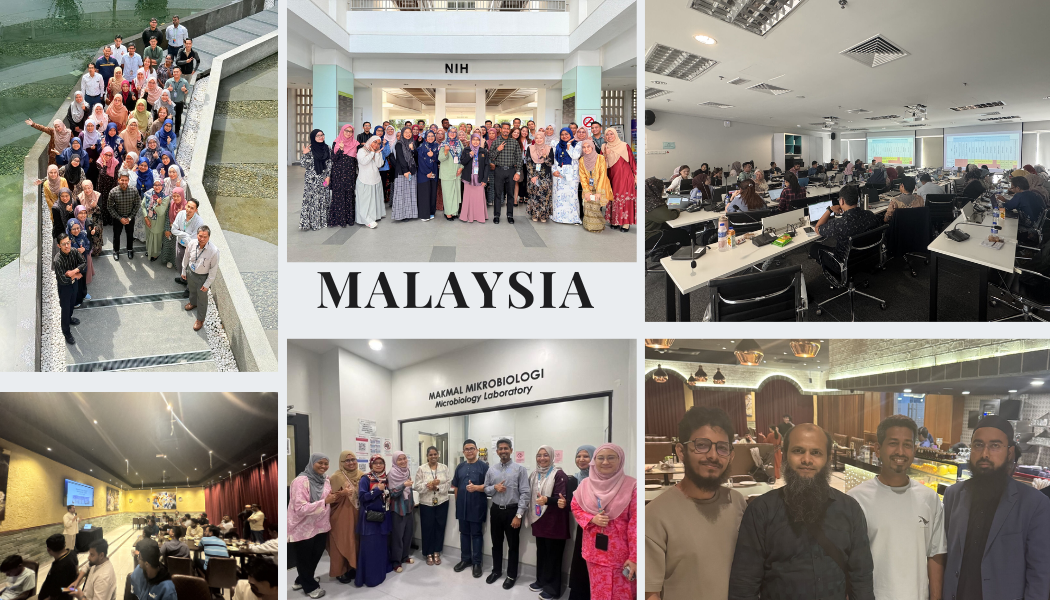
Title: The Global AMR Innovation Fund Summit 2025
Date: March 9-11, 2025
Organized by: UK Government’s Department of Health and Social Care (DHSC)
Location: Kuala Lumpur, Malaysia
Role: Speaker
Topic: How QAAPT Leverages Machine Learning and AI to Address AMR Challenges
Summary: Honored to speak at the #GAMRIFSummit2025 in Kuala Lumpur, organized by the UK Government’s Department of Health and Social Care (DHSC). Over 140 experts from 29 countries gathered to collaborate on combating #AMR. The summit highlighted innovation, knowledge-sharing, and new partnerships in the fight against antimicrobial resistance (AMR).
During the event, I had the privilege of presenting the UK aid #FlemingFund Regional Grant #CAPTURA, which is led by the International Vaccine Institute (IVI). My presentation focused on how QAAPT utilizes Machine Learning and AI to address AMR challenges, with the aim of creating a global, free AMR data management and visualization tool.
It was an inspiring opportunity to connect with leading scientists, researchers, and organizations, including SeqAfrica and EQAsia. I look forward to further collaborations and advancing our collective work to combat AMR.
A special thanks to the #DHSC team and to all those who made the summit a success, including Shahida Syed, Aaron Kual, Tom Pilcher, Grace Melvin, Wei Huang, Amina Ndanusa, and Nimesh Poudyal for facilitating this impactful event.
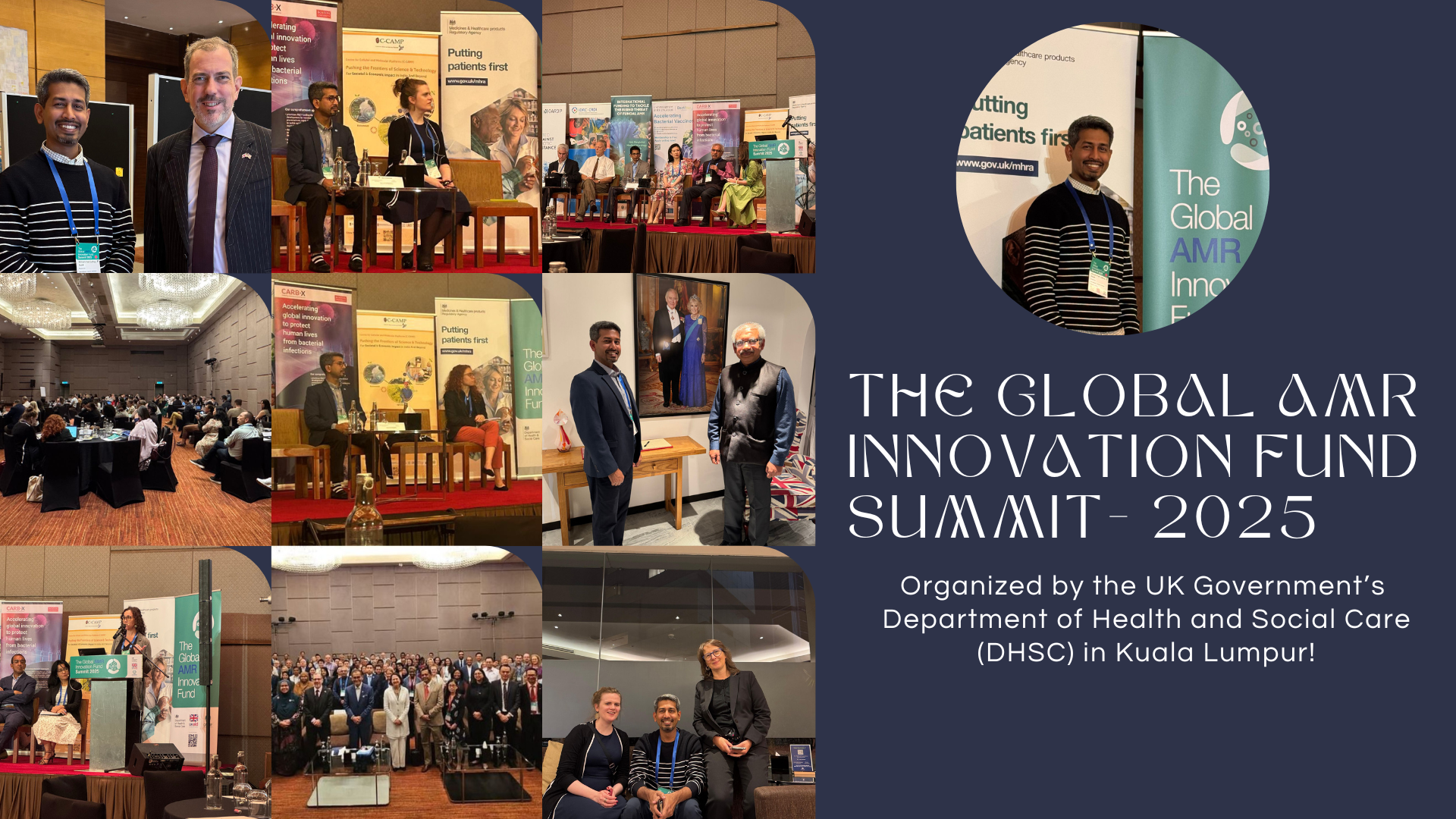
Title: Advanced Antimicrobial Resistance (AMR) Data Analysis and Clinical Leadership Training
Date: Feb 18-21, 2025
Organized by: Supported by the UK Government’s Fleming Fund through the CAPTURA and TACE projects, International Vaccine Institute (IVI)
Location: Hotel Grand Intercontinental, Seoul, South Korea
Role: Organizer and Presenter
Topic: Empowering Decision-Makers in AMR Data Analysis with QAAPT
Summary: It was a privilege to organize and present at the three-day Advanced AMR Data Analysis and Clinical Leadership Training in Seoul. Supported by the #FlemingFund through the #CAPTURA and #TACE projects, the event brought together over 60 participants from more than 15 countries and featured 20+ expert speakers.
As both an organizer and speaker, I demonstrated how QAAPT (https://qaapt.com), a free, web-based AMR data visualization platform, can empower decision-makers, microbiologists, and public health professionals to analyze AMR data and drive meaningful actions.
Distinguished leaders from the field, including Jerome Kim (Director General, IVI), Florian Marks (Deputy Director General, IVI), Nimesh Poudyal (Head of AMR Department, IVI), and Professor Dame Sally Davies (UK Special Envoy on AMR), joined us to share their expertise.
I extend a special thank you to the expert speakers and my colleagues, including John Stelling, Professor Karin Thursky, Kamini Walia, Nour Shamas, Sanjay Kumar Singh, and many more, for their invaluable contributions to the event's success.
This training exemplified the power of collaboration, innovation, and data-driven decision-making in tackling AMR, and I look forward to continuing these essential conversations to create meaningful change in global health.
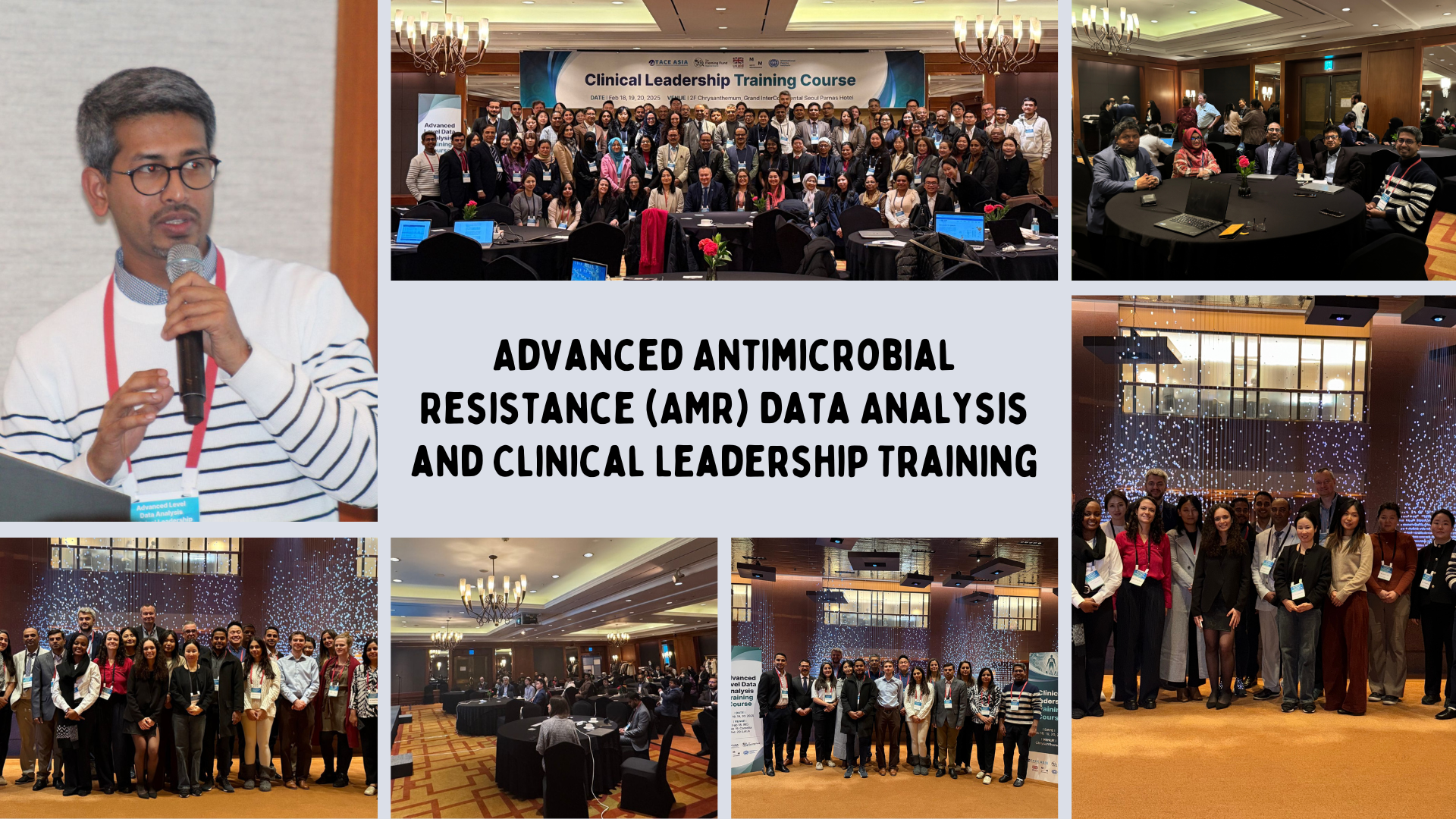
Title: National One Health AMR Surveillance Capacity Building Training
Date: December 21-26, 2024
Organized by: CDC-DGHS, IEDCR, with support from the Fleming Fund Country Grant to Bangladesh, CAPTURA & TACE Project, WHONET Strategic Alignment Grant, AMROH Project/Massey University
Location: Dhaka, Bangladesh
Role: Lead Trainer & Facilitator
Topic: Strengthening One Health AMR Surveillance and Data Analysis
Summary: 🚀 Strengthening Antimicrobial Resistance (AMR) Surveillance in Bangladesh! We successfully completed a five-day capacity-building training program focusing on Human, Animal, Aquaculture, and Environment sectors. This initiative empowered key stakeholders with essential skills in AMR data management and analysis under the One Health approach.
As part of this initiative, I had the privilege to lead a two-day hands-on training on AMR data analysis using WHONET and QAAPT (https://lnkd.in/gvZvbJST), equipping participants with practical tools to process and interpret surveillance data. This was followed by a sector-specific session on AMR data management for Animal, Aquaculture, and Environment sectors conducted by the AMROH team, and a final session focused on cross-sectoral One Health collaboration.
Organized by CDC-DGHS and IEDCR, and supported by global partners including CAPTURA & TACE, Fleming Fund, and WHONET, this effort highlights the importance of coordinated, data-driven AMR surveillance. Participants are now better equipped to develop local antibiograms and contribute to national and global AMR containment strategies.
Special appreciation to global experts and colleagues: Dr. Nimesh Poudyal, Prof. Joanna McKenzie, Prof. Jaap Wagenaar, Dr. John Stelling, Prof. Heike Schmitt, Dr. S M Shahriar Rizvi, Dr. Nure Alam Siddiky, Prof. Shah Monir Hossain, Prof. Zakir Hosaain Habib, Prof. Tahmina Shirin, Dr. Md. Noor Ashad-Uz-Zaman, Dr. Hurul Jannat Shimu, Dr. Piash Kumer Deb, Dr. Saima Binte-Golam Rasul, Mr. Shakawat Hossain, Dr. Alejandro Dorado García, and all the dedicated participants.
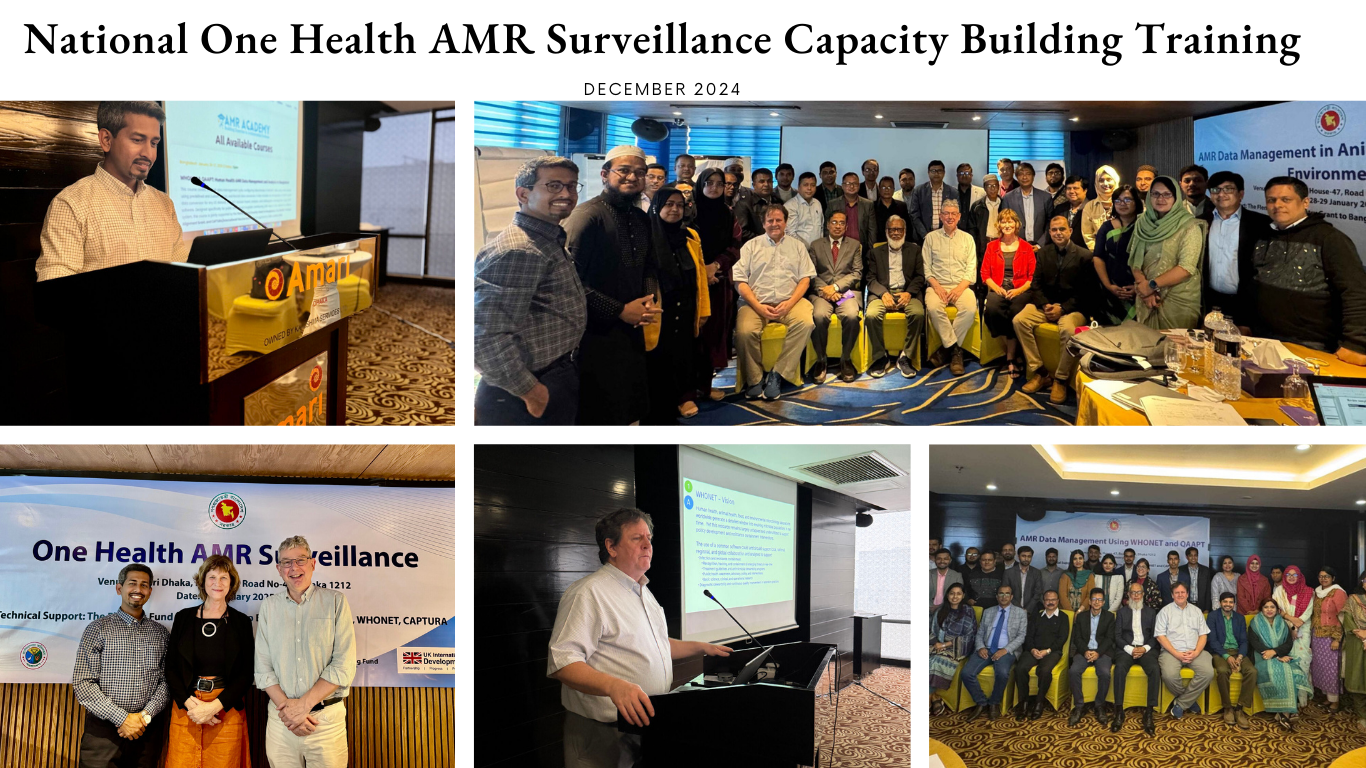
Title: CAPTURA Phase 2 & TACE Project Inauguration in Bangladesh
Date: November 2024
Organized by: Fleming Fund Regional Grant Phase 2, Mott MacDonald, International Vaccine Institute (IVI)
Location: Dhaka, Bangladesh
Role: Project Inauguration & Speaker
Topic: Advancing AMR Surveillance and Management in Asia
Summary:I thrilled to announce the successful completion of the CAPTURA Phase 2 & TACE Project Inauguration in Bangladesh. This milestone was made possible by the Fleming Fund Regional Grant Phase 2, managed by Mott MacDonald, and led by the International Vaccine Institute (IVI). The project focuses on advancing Antimicrobial Resistance (AMR) surveillance and management across Asia.
The event brought together global health experts, policymakers, and technical partners from organizations like The Peter Doherty Institute, WHONET, SwipeRx Limited, and University of Heidelberg. During the inauguration, we discussed strategies for improving AMU/AMC surveillance, piloting a national antimicrobial prescribing survey tool, and establishing an AMR Surveillance Monitoring and Evaluation Framework.
The inauguration also marked the beginning of a long-term collaboration aimed at enhancing the private sector’s role in AMR surveillance and management. The event highlighted the importance of international partnerships in addressing global health challenges, and we look forward to the continued progress of these initiatives in Bangladesh and across Asia.
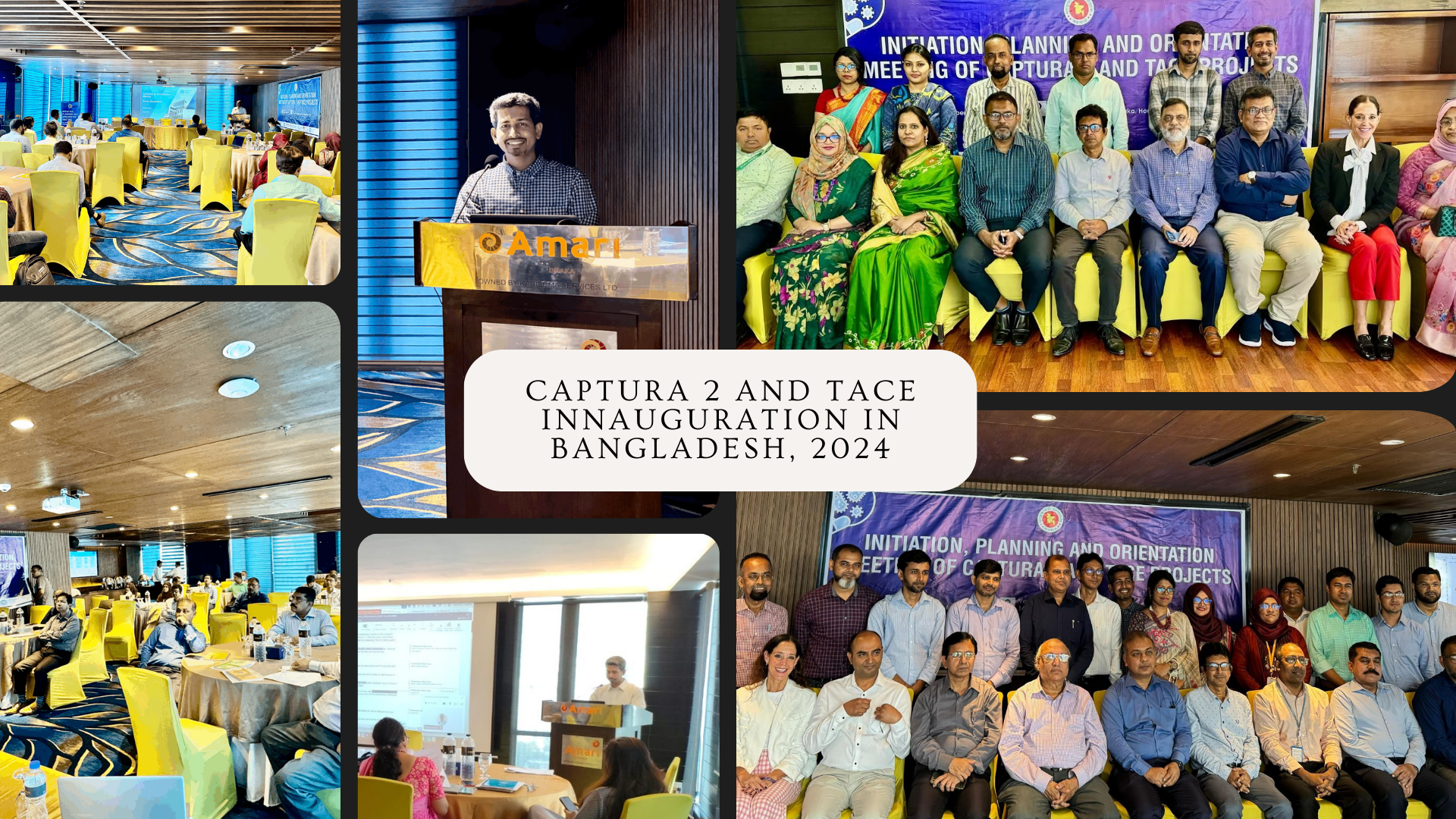
Title: National AMR Data Management Training – Malaysia
Date: September 2024
Organized by: Institute for Medical Research (IMR), National Institute of Health, Ministry of Health Malaysia
Location: Kuala Lumpur, Malaysia
Role: Lead Trainer
Topic: AMR Data Integration, Analysis & Visualization using WHONET and QAAPT
Summary: Wrapped up a highly rewarding five-day training session on Antimicrobial Resistance (AMR) data management and analysis using WHONET and QAAPT software. Hosted by the Institute for Medical Research (IMR) under the National Institute of Health (NIH), Ministry of Health Malaysia, the training brought together passionate professionals dedicated to strengthening AMR surveillance through data-driven approaches.
Over the course of the week, we explored key concepts in data integration, conversion, visualization, and analysis—equipping participants with practical skills to tackle AMR challenges in their respective institutions. The enthusiasm and adaptability of the participants were truly inspiring, making the experience incredibly fulfilling.
Special thanks to our gracious hosts at IMR, with heartfelt appreciation to Dr. Rohaidah Hashim, Dr. Ridhuan Ali, Ms. Fadhilah, and the entire organizing team. We're also grateful to Dr. Nimesh Poudyal for virtually sharing IVI’s global AMR mission and to Dr. John Stelling, founder of WHONET, for discussing WHONET’s strategic roadmap.
The training exemplified our shared commitment to building strong public health systems through collaborative learning and innovation. Participants now have access to continued learning through the AMR Academy and its comprehensive training resources.
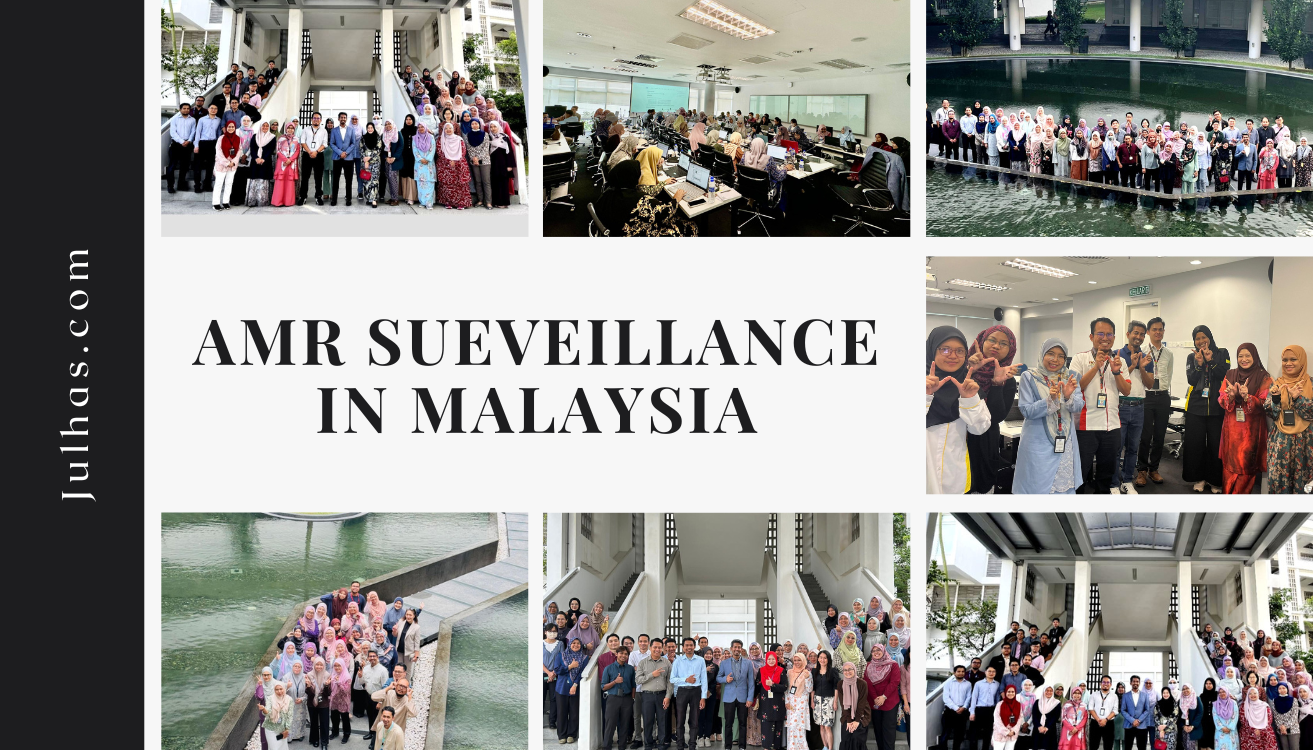
Title: 8th World One Health Congress
Date: September 19-24, 2024
Organized by: Global One Health Community
Location: Cape Town, South Africa
Role: Participant & Speaker
Topic: Advancing One Health Approach to Combat AMR
Summary: I had the privilege of participating in the 8th World One Health Congress in Cape Town, South Africa, organized by the Global One Health Community. This event brought together professionals, scientists, and policymakers from around the world to advance the One Health approach in addressing global health challenges, including Antimicrobial Resistance (AMR).
The congress provided an excellent opportunity to showcase innovative approaches to tackling AMR, exchange knowledge with global experts, and discuss the vital intersection of human, animal, and environmental health. During the event, I presented on how QAAPT contributes to One Health AMR surveillance through data-driven solutions.
The conference also focused on fostering international collaborations and further strengthening the global response to AMR. It was an invaluable experience engaging with global health leaders and contributing to impactful discussions at this prestigious event.
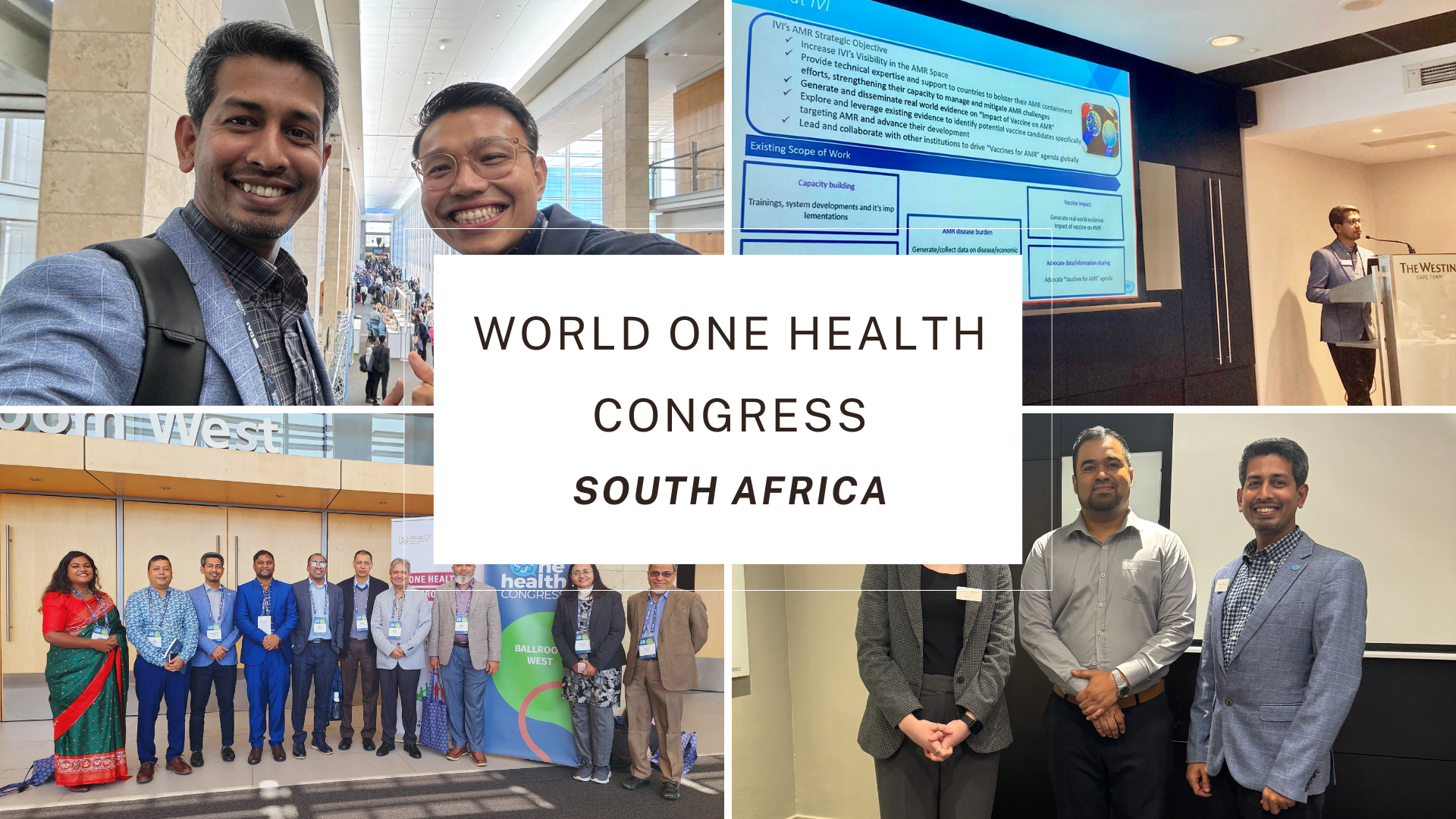
Title: QAAPT: Quick Analysis of Antimicrobial Patterns and Trends at 5th International Conference on Biotechnology in Health and Agriculture in Bangladesh
Date: Sep 3, 2023
Organized by: Global Network of Bangladeshi Biotechnologists (GNOBB)
Location: Dhaka, Bangladesh
Title: Statistics for Microbiologist: AMR data management and analysis
Date: August 5, 2023
Organized by: JaeTech Global
Location: Online
Title: DHIS2 Annual Expert Academy 2021: Antimicrobial Resistance Surveillance: WHONET and DHIS2 integration in Bangladesh
Date: July, 2021
Organized by: University of Oslo, Norway.
Location: Online
Title: Webinar | Evidence to Action: Advancing the Antimicrobial Resistance Agenda during a Pandemic – December 2020
Date: December 2020
Organized by: International Vaccine Institute (IVI), International Centre for Antimicrobial Resistance Solutions (ICARS), Embassy of Denmark in Korea
Location: Online
Title: APNIC Asia-2019
Date: September 2019
Organized by: APNIC
Location: Chiang Mai, Thailand
Title: Asia Electronic Health Informatics Network, AeHIN-2019
Date: June 2019
Organized by: HISP Sri Lanka
Location: Colombo, Sri Lanka
Title: CEBIT Asia-2019
Date: March 2019
Organized by: CEBIT Asia
Location: Bangkok, Thailand
Title: DHIS2 Expert Academy-2018
Date: July 2018
Organized by: Department of Informatics, University of Oslo
Location: Oslo, Norway
Title: DHIS2 Level-1 Academy
Date: June 2018
Organized by: HISP Bangladesh and DGHS
Location: Dhaka, Bangladesh
Title: DHIS2 Level-2 Academy-2017
Date: November 2017
Organized by: University of Oslo and HISP Tanzania
Location: Dar-es Salaam, Tanzania
Title: J2EE Training
Date: January 2015
Organized by: Bangladesh Hi-Tech Park Authority, ICT Division
Location: Mysore, India
